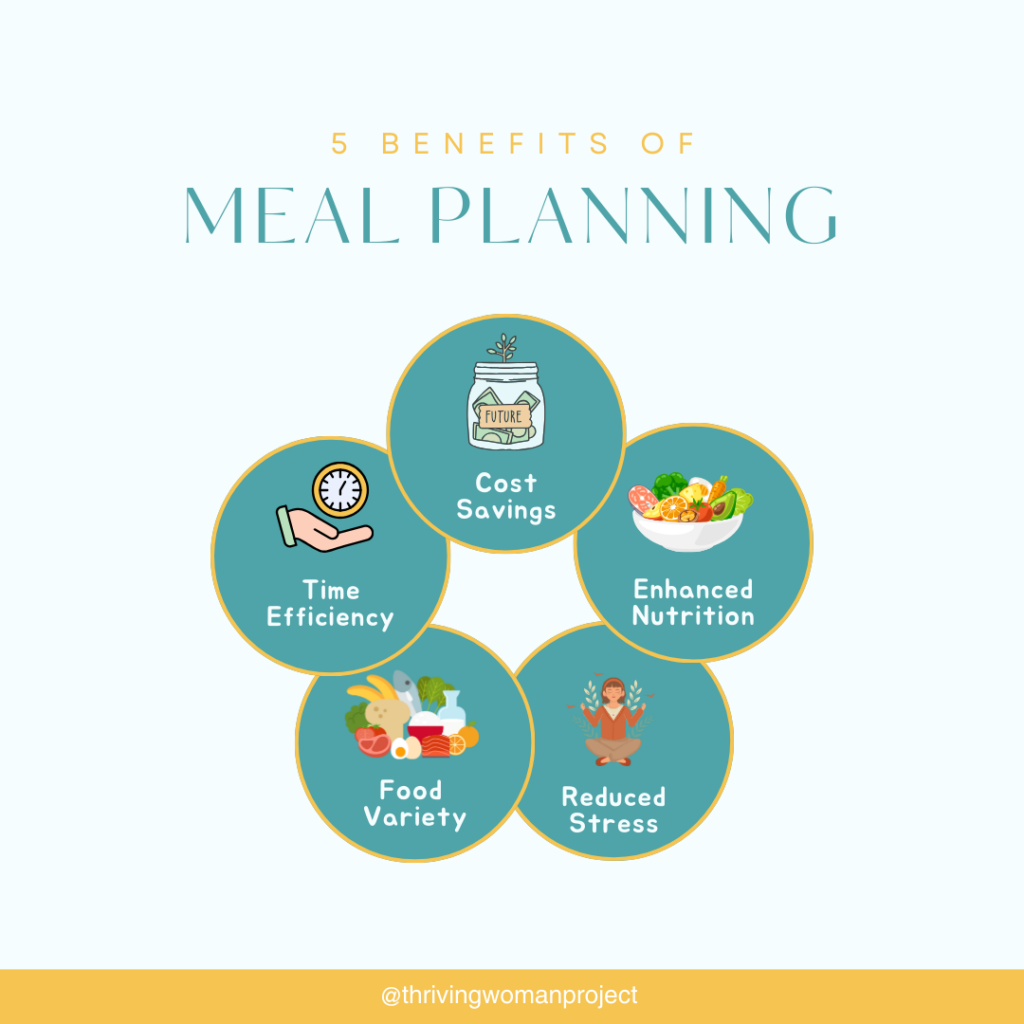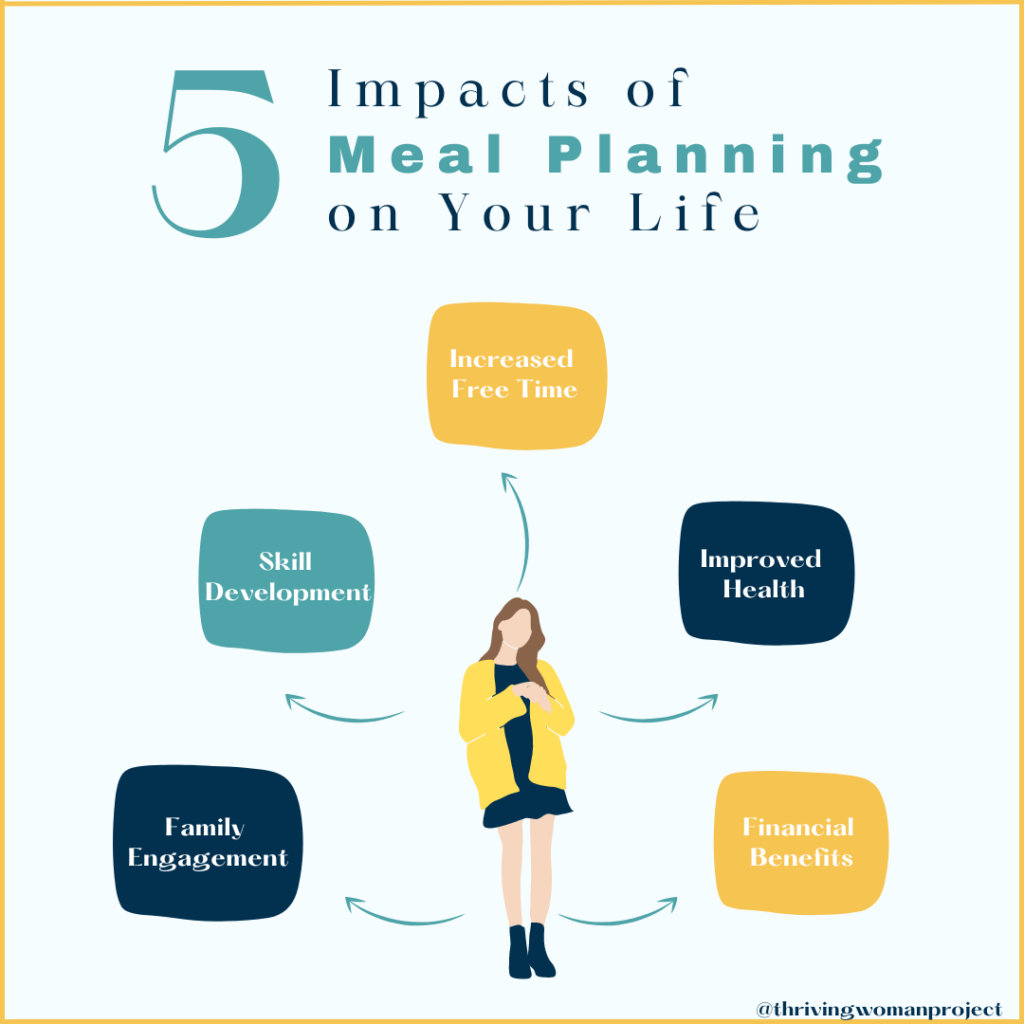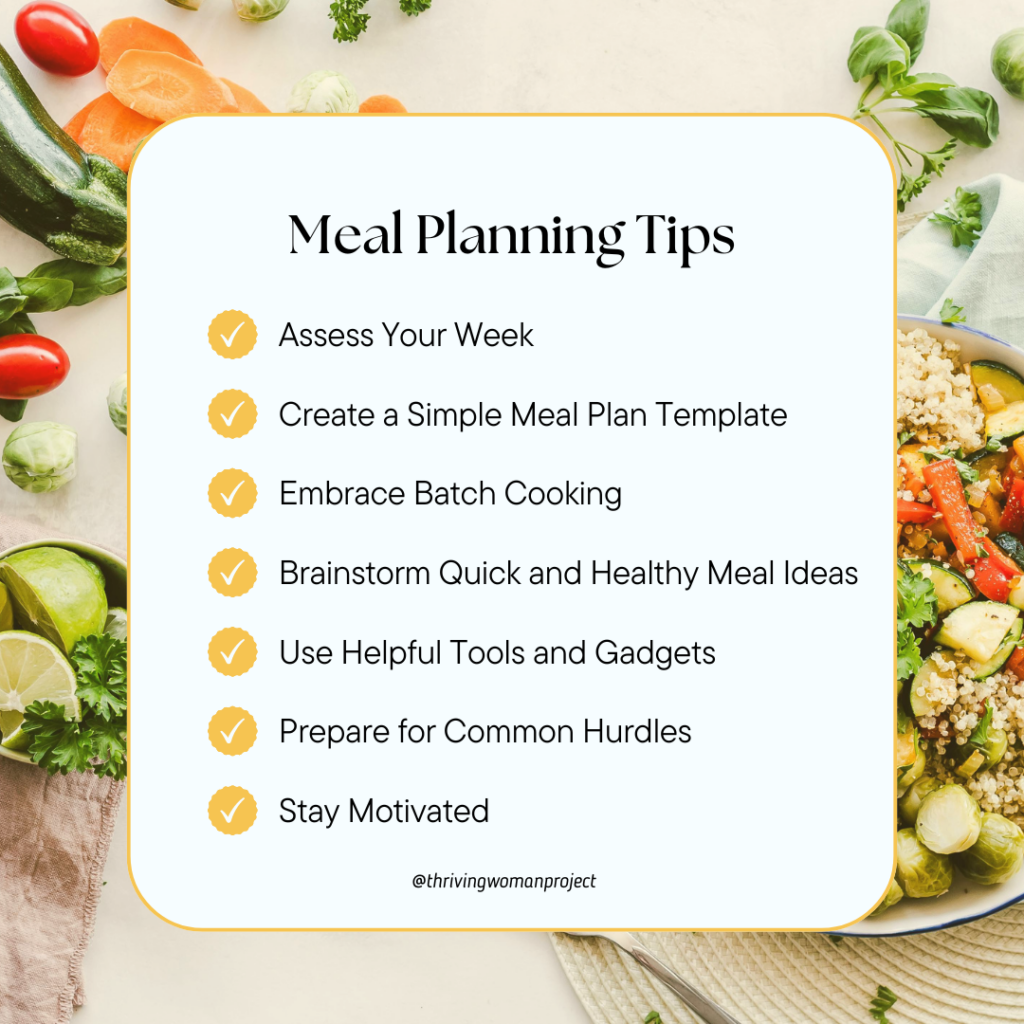Let’s face it – between juggling work, family, and a million other responsibilities, sometimes it feels like there aren’t enough hours in the day. For busy women, meal planning tips can be a lifesaver, because when time is tight, it’s all too easy to fall into the trap of grabbing whatever’s quickest to eat, even if it’s not the healthiest choice.
Trust me, I’ve been there. Those drive-thru runs and microwaved meals can seem like lifesavers in the moment, but they often leave us feeling sluggish and guilty later. That’s why I’m excited to share some game-changing meal planning tips for busy women that have completely transformed how I eat – even on my craziest days.
If you’re rolling your eyes thinking, ‘Great, another complicated system I don’t have time for,’ don’t worry! I promise these strategies are designed for real life, not Pinterest perfection. So grab a cup of coffee (or wine, no judgment here), and let’s chat about how to keep our sanity and eat well, even when life gets hectic!
The Basics of Meal Planning: Why It’s Worth It
Meal planning isn’t just for super-organised people or culinary whizzes. It’s a fantastic way to save time, reduce stress, and make sure you’re eating balanced meals. It is more than just organising your meals; it’s a strategic approach to simplify your life and improve your overall wellbeing.
Here’s why incorporating meal planning into your routine is helpful:
- Time Efficiency: With a well-thought-out plan, you eliminate the daily dilemma of deciding what to cook. This not only saves you time but also allows you to focus on other important aspects of your day.
- Cost Savings: By planning your meals, you can make grocery lists that prevent impulse buying and reduce food waste. This practice ensures you only purchase what you need, leading to significant financial savings.
- Enhanced Nutrition: Planning meals in advance allows you to create a balanced diet, ensuring that you and your family receive all the necessary nutrients. It promotes healthier eating habits by reducing the temptation to opt for unhealthy, quick-fix meals.
- Reduced Stress: Knowing what you’ll be cooking each day removes the daily stress of meal preparation. It brings a sense of control and order, making your kitchen a more pleasant place.
- Food Variety: Meal planning encourages you to try new recipes and ingredients, adding variety to your diet and preventing monotony in your meals.

The Impact of Meal Planning on Your Life
Incorporating these ‘meal planning tips for busy women’ into your routine can lead to profound positive changes in various aspects of your life:
- Increased Free Time: With meals planned and prepped, you’ll find yourself with more time to enjoy activities you love or simply relax. It allows for a better work-life balance and more quality time with loved ones.
- Improved Health: A thoughtfully planned diet can lead to better health outcomes. By controlling what goes into your meals, you can manage dietary restrictions, track nutritional intake, and make healthier choices.
- Financial Benefits: Regular meal planning can significantly reduce your grocery bills. The money saved can be allocated to other important areas, such as savings, hobbies, or family activities.
- Skill Development: Consistently planning and preparing meals can enhance your culinary skills. It encourages you to explore new recipes, cooking techniques, and ingredients, making you a more confident cook.
- Family Engagement: Meal planning can become a family activity. Involving family members in the planning process can be educational and fun, fostering better communication and cooperation.

Step 1: Assess Your Week
Start by taking a good look at your weekly schedule. Do you have a couple of days that are busier than others? Maybe you’re swamped with meetings or have a packed after-school schedule for the kids. Knowing when you’re most pressed for time helps you decide which days need the quickest, easiest meals.
Step 2: Simple Meal Plan Template
Now, let’s talk about setting up a meal plan. It doesn’t need to be fancy. A simple template with slots for breakfast, lunch, dinner, and snacks is all you need. Jot down a few ideas for each meal, keeping in mind what’s quick and what you can prep in advance. Think of dishes like overnight oats, salads, stir-fries, and pasta that come together in a flash.
Download my free Weekly Meal & Grocery Planner here.
Step 3: The Art of Batch Cooking
Batch cooking is your new best friend. The idea is to cook larger portions of a meal so you can have leftovers for the next day or freeze portions for later. For example, whip up a big pot of chilli or a hearty soup. Not only does this save time, but it also means you always have something nutritious on hand.
Step 4: Quick and Healthy Meal Ideas
Let’s brainstorm some quick and easy meal ideas. For breakfast, how about some overnight oats or a smoothie? They’re quick to prepare and can be made the night before. For lunch, think salads with pre-chopped veggies and some protein like chicken or chickpeas. Dinners can be as simple as a stir-fry with whatever veggies you have, some tofu or chicken, and a quick sauce. And don’t forget snacks—fruit, nuts, or a bit of cheese can keep you going.
You can also have some fun with theme nights by assigning themes to different nights of the week to simplify meal planning – EG. Meatless Monday, Taco Tuesday, or Slow Cooker Saturday.
Download my free Recipe Book here.
Use a list app ToDoist to have a simple online shopping list, which can be shared with others in your household to add things to as they run out. No more forgetting your list at home!
Step 5: Tools and Gadgets
Don’t underestimate the power of a few good kitchen gadgets. A slow cooker can be a game-changer, letting you throw ingredients in and come home to a cooked meal. An instant pot is another great tool for speeding up cooking times. And let’s not forget the humble freezer, perfect for storing those batch-cooked meals.
Step 6: Overcoming Common Hurdles
We all know life can throw curveballs. Maybe you had a long day and the last thing you want to do is cook. That’s where your batch-cooked meals come in handy. Keep a few “emergency” meals in the freezer for those days. And if you’re dealing with picky eaters or dietary restrictions, try to find versatile recipes that can be customised.
Step 7: Staying Motivated
Meal planning can seem like a chore at first, but it gets easier the more you do it. Keep your goals in mind, whether it’s eating healthier, saving money, or simply avoiding the stress of last-minute cooking. And remember, it’s okay to keep things simple. You don’t need to cook gourmet meals every night.

FAQs
1. What’s the easiest meal to batch cook?
Soups, stews, and casseroles are fantastic options for batch cooking because they’re easy to make in large quantities and freeze well.
2. How can I make meal planning less overwhelming?
Start with just one meal a day, like dinner, and plan for that. As you get more comfortable, you can add more meals to your plan.
3. What if I don’t have time to cook every day?
That’s okay! Use batch cooking to prepare meals in advance. You can also rely on healthy, convenient options like pre-washed salads and rotisserie chicken.
4. Are there specific foods that last longer and are good for meal prepping?
Grains like rice and quinoa, root vegetables like carrots and potatoes, and proteins like beans and lentils all store well and are great for meal prep.
5. How can I involve my family in meal planning?
Get everyone involved by asking for meal suggestions or letting family members choose a recipe for the week. It can make the process more enjoyable and ensure everyone’s preferences are considered.
Remember, Meal planning doesn’t have to be overwhelming or time-consuming. With a bit of organisation and some simple strategies, you can eat well even on your busiest days. Remember, the goal is to make life easier, not harder. So, start small, keep it simple, and you’ll be a meal planning pro in no time!
Be sure to down my free Weekly Meal & Grocery Planner here – to help you get started on your meal planning journey!
If you enjoyed reading my ‘Meal Planning Tips for Busy Women’ blog check out my podcast ‘Save your time and sanity with meal planning’.